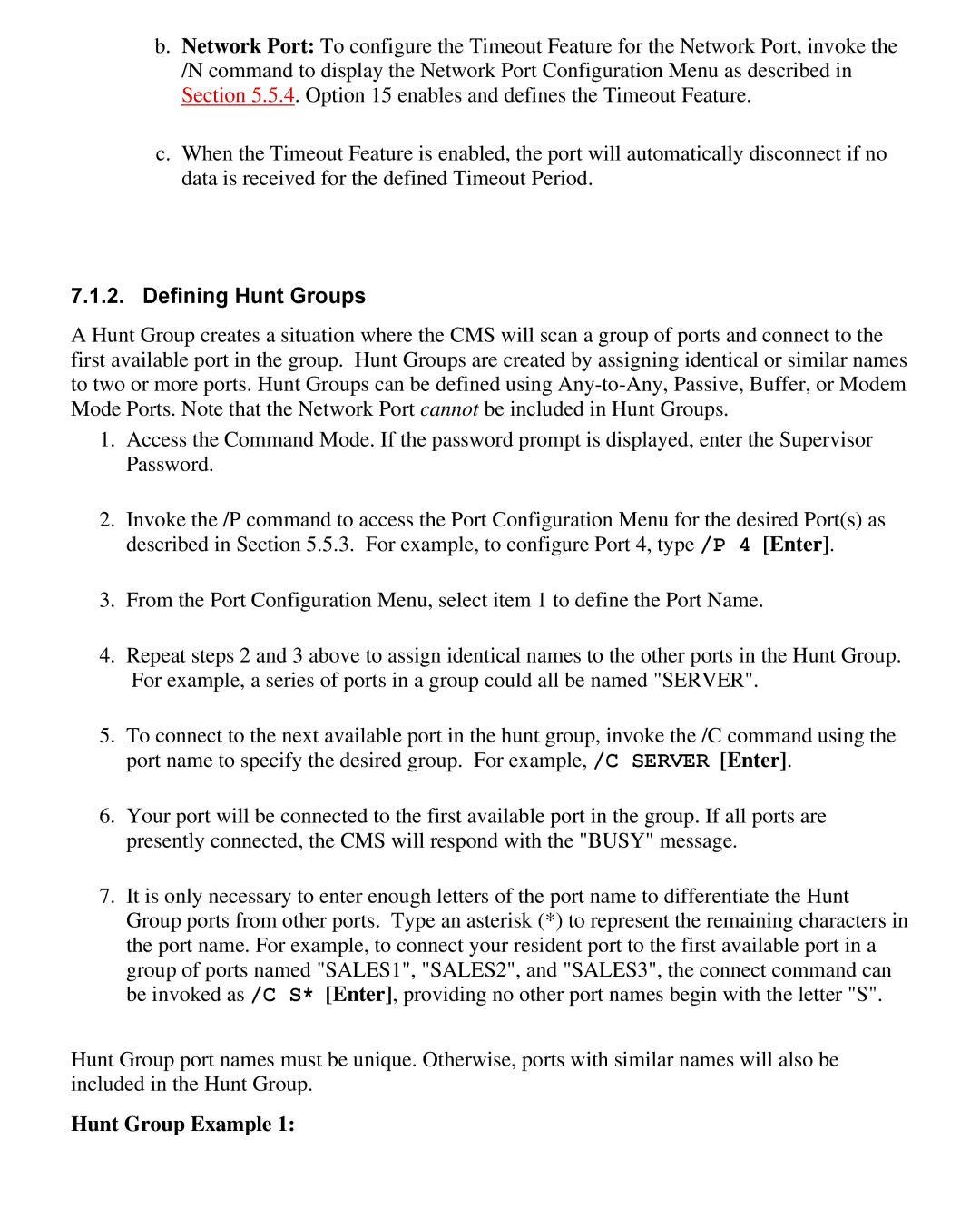b.Network Port: To configure the Timeout Feature for the Network Port, invoke the /N command to display the Network Port Configuration Menu as described in Section 5.5.4. Option 15 enables and defines the Timeout Feature.
c.When the Timeout Feature is enabled, the port will automatically disconnect if no data is received for the defined Timeout Period.
7.1.2.Defining Hunt Groups
A Hunt Group creates a situation where the CMS will scan a group of ports and connect to the first available port in the group. Hunt Groups are created by assigning identical or similar names to two or more ports. Hunt Groups can be defined using
1.Access the Command Mode. If the password prompt is displayed, enter the Supervisor Password.
2.Invoke the /P command to access the Port Configuration Menu for the desired Port(s) as described in Section 5.5.3. For example, to configure Port 4, type /P 4 [Enter].
3.From the Port Configuration Menu, select item 1 to define the Port Name.
4.Repeat steps 2 and 3 above to assign identical names to the other ports in the Hunt Group. For example, a series of ports in a group could all be named "SERVER".
5.To connect to the next available port in the hunt group, invoke the /C command using the port name to specify the desired group. For example, /C SERVER [Enter].
6.Your port will be connected to the first available port in the group. If all ports are presently connected, the CMS will respond with the "BUSY" message.
7.It is only necessary to enter enough letters of the port name to differentiate the Hunt Group ports from other ports. Type an asterisk (*) to represent the remaining characters in the port name. For example, to connect your resident port to the first available port in a group of ports named "SALES1", "SALES2", and "SALES3", the connect command can be invoked as /C S* [Enter], providing no other port names begin with the letter "S".
Hunt Group port names must be unique. Otherwise, ports with similar names will also be included in the Hunt Group.
